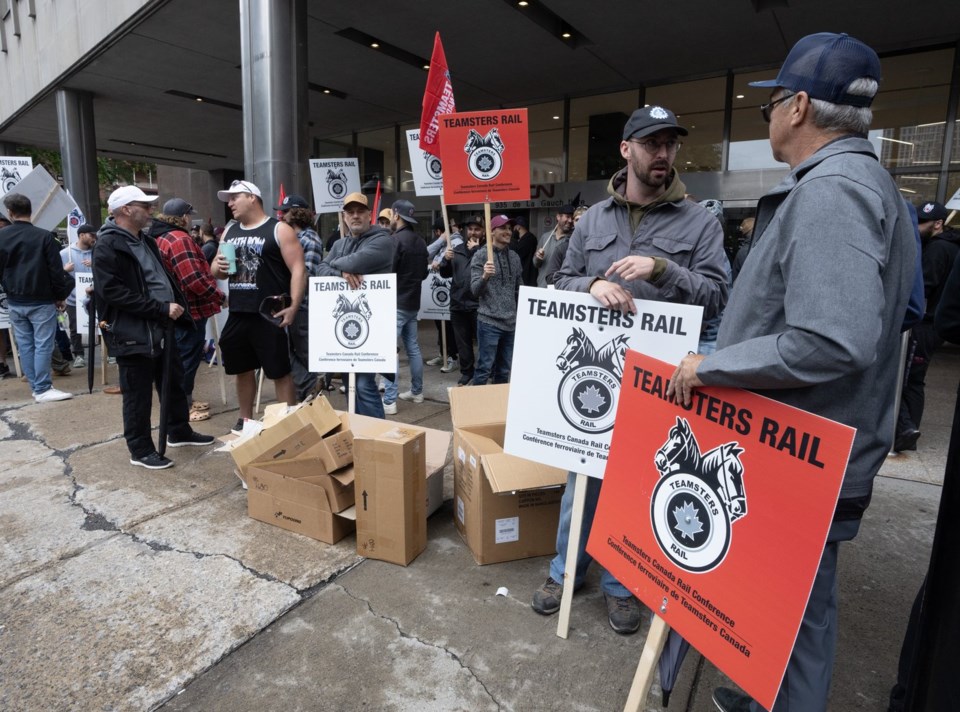TORONTO — Economists say the work stoppage that began last night at Canada's two major railways will have a significant effect on the country's economy.
Canadian National Railway Co. and Canadian Pacific Kansas City Ltd. locked out their workers after talks broke down with the union, bringing freight trains across the country to a halt.
"If it persists, the lockout would temporarily derail activity not just within that sector but within the economy more broadly, given how important the rail network is for exports and goods shipments," wrote CIBC senior economist Andrew Grantham in a note.
A one-week lockout would lower third-quarter annualized GDP by about 0.4 percentage points, said Grantham.
The effect would more than double if the dispute stretches to two weeks because more sectors will be forced to curtail production, he said.
The direct impact on the economy is actually relatively small, noted Grantham — it's the knock-on effects of a shutdown that really have the potential to bite. A longer stoppage could lead to some goods production shutting down, and would limit retailers' ability to stock some goods on their shelves.
"Because of that the indirect effects will be non-linear, as a labour dispute of four weeks would have far more than four times the negative impact relative to if it lasted just one week," he said.
Grantham says the work stoppage will also likely put some pressure on inflation, given that shipments of fresh and frozen foods were already halted leading up to the lockout. However, he says the upward effect on inflation would be much smaller than the downward effect on GDP.
BMO economists Robert Kavcic and Shelly Kaushik wrote in a note that, historically, these kinds of disruptions have ended relatively quickly through back-to-work legislation, but the economic impact mounts with each passing day.
"This could shape up to be yet another negative supply shock for the economy where the consequences, at least temporarily, are growth negative and inflation positive," they wrote.
Short-lived labour disputes in the Canadian rail sector aren't unprecedented, said Grantham, noting several disputes at both major rail companies in recent history.
But what makes this stoppage unique and more disruptive is the fact both railway companies are shut down at the same time, he said.
"Typically, Canada's two major rail companies are negotiating new contracts with employees a year apart, but in 2022 CN requested a yearlong extension to the current deal, bringing the negotiation periods into line with each other," wrote Grantham.
This report by The Canadian Press was first published Aug. 22, 2024.
Companies in this story: (TSX:CNR, TSX:CP)
The Canadian Press

